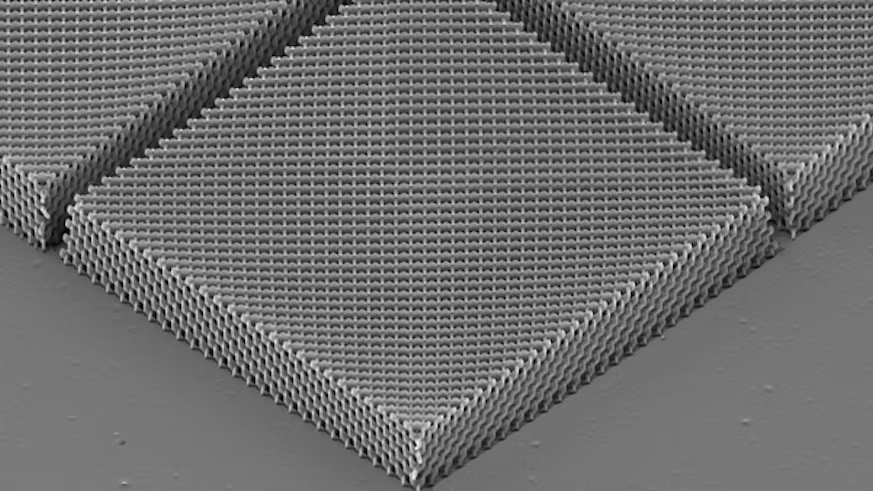Welsh researchers to turn artificial materials into real-life solutions

A state-of-the-art hub will develop new forms of materials, designed at microscopic scale, for use in everything from computer hardware to food colouring.
Led by the University of Exeter in collaboration with a team of scientists from Cardiff University, King’s College London, Cambridge University, St Andrews University and Southampton University, the MetaHub is being supported by a £10.5 million investment from the Engineering and Physical Sciences Research Council (EPSRC).
An additional £9.1 million comes from the higher education institutions and private investment, demonstrating the value of cutting-edge research as a driver of investment across the UK.
Metamaterials
The MetaHub is focused on 3D nanoscale ‘metamaterials’ – materials designed at tiny scales to produce new and useful properties not found in natural resources.
Over the past 5 years, Cardiff has pioneered methods to produce 3D nanostructured magnetic materials.
“These systems are produced by a special type of 3D printing on a tiny scale, yielding magnetic elements around 1,000 times smaller than the width of a human hair,” said Professor Sam Ladak from Cardiff University’s School of Physics and Astronomy and the Cardiff lead on the MetaHub project.
“By placing these tiny magnets in complex 3D arrangements, we can realise properties that are not possible with conventional materials that you would mine from the ground.
“So, here at Cardiff, we’ll use our established expertise in nanoscale 3D printing to support the MetaHub’s ambitions to produce a new range of materials that allow low energy for applications in, among other things, computation and telecommunications.”
Expertise
Investing now in the UK’s metamaterials expertise paves the way for the products of the future to be invented in Britain, with new jobs, businesses and even entire industries to potentially flow from them.
Speaking at the hub’s launch in the University of Exeter, Science Minister Lord Vallance said: “Our backing for the MetaHub is an investment, for both today and for tomorrow. We are securing the UK’s leadership in the high-potential field of metamaterials, a new class of materials specially engineered to have new and useful properties.
“This work is paving the way for future products and innovations that will deliver jobs and growth, in the years ahead.”
Professor Charlotte Deane, Executive Chair at EPSRC, added: “We’ve nurtured metamaterials research for many years and it’s fantastic to see it grow from a few individual research groups in the 1990s to a rapidly expanding and thriving research community today.
“By harnessing the control of light, energy and information, the MetaHub has the potential to benefit both civil and defence sectors. From more efficient, effective and secure computing and communication to advanced sensing and energy generation, this research will take curiosity-led research to tangible outcomes.”
Support our Nation today
For the price of a cup of coffee a month you can help us create an independent, not-for-profit, national news service for the people of Wales, by the people of Wales.





